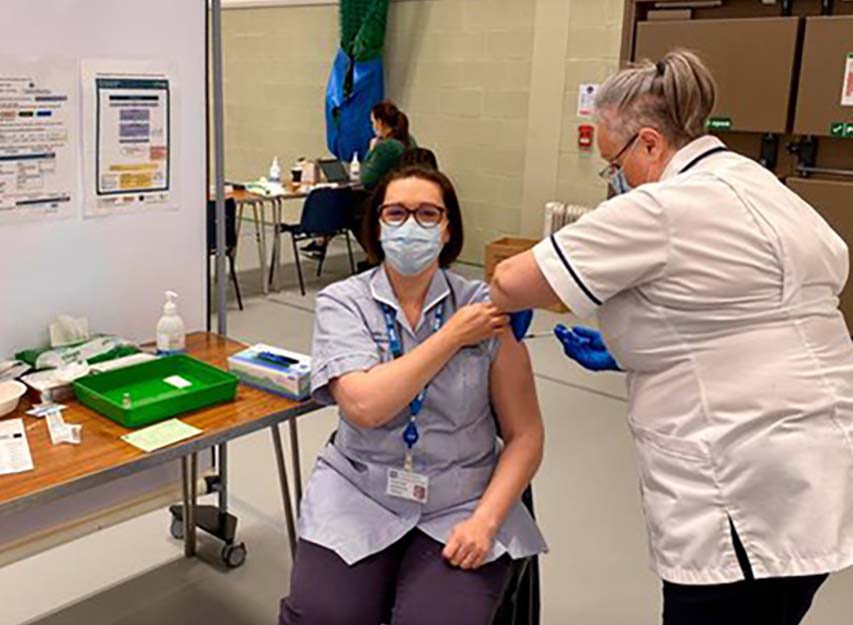Vaccines are still the first line of defence against killer diseases
In the last two years we have learnt that vaccines really are the first line of defence against killer disease and this year during World Immunisation Week we are reminding everyone that we cannot become complacent.
So whether it’s the COVID-19 vaccine or vaccination as part of a seasonal programme or the childhood immunisation programme, getting vaccinated is the single most important thing we can do to protect our health.
Rachel Spiers, Immunisation and Vaccination Programme Manager at the PHA said: “Many childhood diseases that were common in the UK prior to the introduction of vaccination have been dramatically reduced or have disappeared altogether. However, once a disease fades from prominence’, it is easy to forget how serious they could be.
“Unfortunately, unless vaccine uptake remains high in Northern Ireland, many deadly diseases will return from parts of the world where they still occur.”
The MMR vaccine was launched in 1988 when there were still over 80,000 annual notifications of measles across the UK. The year after the vaccine was introduced, the figure dropped to just over 25,000, and continued to fall.

Protection against polio, along with other ‘diseases of the past’ such as diphtheria and tetanus, remain part of the childhood vaccination programme today, and the incidence of these three infections has fallen dramatically, with no cases in Northern Ireland in recent times.
Mr Spiers added: “The virtual eradication of these deadly illnesses here, as well as a range of others, is thanks to the fact that we are lucky to have a free, comprehensive vaccination programme in place for our new born babies, right up to 70+ year olds.
“In recent years new vaccines have been included to offer further protection against a range of other illnesses of both childhood and older years, such as rotavirus for babies, pertussis for pregnant woman, shingles for 70 year olds, and HPV for girls and boys in year 9 and 10. Like all vaccines that are offered on the immunisation programme, these have been proven to be both safe and effective, and are saving and improving lives.
“The childhood vaccination programme has been a tremendous success, with Northern Ireland having uptake rates above the UK average. However, some vaccines have seen a decline in uptake, albeit a small one.
“It is possible that during COVID-19 pandemic some parents may have been cautious about going to their GPs, not wanting to burden them or they did not realise they were still offering routine immunisations.
“If your child has missed a vaccination, please contact your GP practice to book an appointment as soon as you can to make sure they have maximum protection against disease. The school-based vaccination programme, which includes the HPV, school leavers’ booster and menACWY is also continuing, so don’t forgot to sign and return consent forms when you receive them.
“The other concern is that the misinformation that has been spread about the COVID-19 vaccine may have impacted the childhood immunisation programme. It’s important to be informed about all vaccines, but there is lots of misinformation out there. Make sure your facts come from a reliable source, like the PHA, your own GP or health visitor.
“The immunisation team at the PHA ensures the population is offered maximum protection against vaccine-preventable diseases by working with health visitors, school nurses, schools and GP practices.”
It is only when people continue to get their children and themselves vaccinated in large numbers that we can prevent these diseases, and the possible deaths, so it is vitally important that we don’t take our health and that of our children for granted. Not only that, but getting kids vaccinated also helps protect those who aren’t yet eligible for vaccination, such as tiny babies.
After clean water, vaccination is the most effective public health intervention in the world for saving lives and promoting good health, and therefore one of the most important things that any parent can do is get their child vaccinated and encourage them to continue this throughout their own lifetime.
For more information see:

























